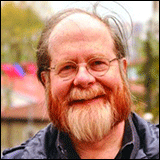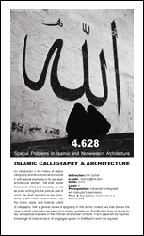Faculty» Past Faculty
Lecturer
(Visiting Faculty Fall 2004, Fall 2007)
 |
Biography
Irvin Cemil Schick was born in Istanbul, Turkey, and obtained his Ph.D. at the Massachusetts Institute of Technology in 1989. He has taught at Harvard University and M.I.T., where he is now a researcher. He is the author of The Erotic Margin: Sexuality and Spatiality in Alteritist Discourse and The Fair Circassian: Adventures of an Orientalist Motif (in Turkish), and the editor or co-editor of several books, including Turkey in Transition: New Perspectives, European Female Captives and their Muslim Masters: Narratives of Captivity from “Turkish Lands” (in Turkish), Women in the Ottoman Balkans: Gender,Culture, History, and the M. Ugur Derman 65th Birthday Festschrift.
|
Fall 2004 course
|
4.631/4.632: Special Problems in Islamic & NonWestern Architecture Space and Gender: Islam, Colonialism, Modernity
This seminar probes the relationship between space and gender as cultural artifacts, by focusing on Muslim societies in the Near and Middle East. We will start by reviewing the literature on the social construction and gendering of space, as well as the religious foundations of sexual segregation and veiling in Islam. The lived reality of seclusion will be explored with reference to autobiographical writings by harem women, and to ethnographic studies of the bodily practices through which space is gendered. Western views of harem life and the critique of seclusion by travelers, missionaries, and feminists will be reviewed, and the importance given to breaking down the boundaries of gendered space in colonial ideology and practice will be discussed. We will then review the critiques of seclusion produced within Muslim societies themselves, and the spatial changes ushered in by the socio-economic changes that have taken place there during the last century or so. Finally, we will assess political Islam from the viewpoint of spatial contestation, focusing on the debate on reveiling both within Muslim countries and in Muslim diasporas in the West. Course Requirements: The seminar will include weekly reading and writing assignments, and will require active participation in class discussions. A research paper must be presented in class and submitted at the end of the term; topics will be decided in consultation with the instructor by the end of the third week of the semester. A short abstract and preliminary bibliography must be submitted by the fifth week.
|
Fall 2007 course
 |
4.628 Special Problems in Islamic and Nonwestern Architecture—Islamic Calligraphy and Architecture
An introduction to the history of Islamic calligraphy and the culture that surrounds it, with special emphasis on its use as an architectural element. We shall review theories of writing and textuality, as well as public writing and the political uses of script. We shall then discuss the importance of the written word in Islam, and the history, styles, and material culture of calligraphy. After a general review of epigraphy in the Islamic context, we shall discuss the uses to which calligraphy has been put in Islamic architecture, from Muslim Spain to Mugal India, with special emphasis on the Ottoman and Persian contexts. A term paper will be required. Knowledge of Arabic script or of languages spoken in the Muslim world not required. Open to advanced undergraduates, with instructor’s permission.
|

